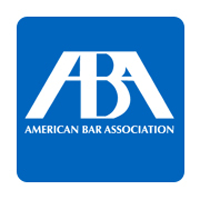ABA urges SCOTUS to review decision that 'opens the floodgates' to disclosure of work product

The ABA is urging the U.S. Supreme Court to review a decision favoring the Federal Trade Commission in its battle to obtain attorney documents regarding a drug company’s settlement agreement with a generic manufacturer.
The ABA brief (PDF) says the Supreme Court should review the decision (PDF) to protect against erosion of the work-product doctrine and provide guidance on its scope. A press release summarizing the ABA arguments is here.
The appellate decision “opens the floodgates” to disclosure of attorney work product in government investigations by requiring a lesser showing of relevance to obtain the material, the ABA contends.
The decision by the U.S. Court of Appeals for the D.C. Circuit found the Federal Trade Commission was entitled to the documents if they were relevant to its investigation, they had a unique value and they could not reasonably be obtained elsewhere because of special circumstances.
The appeals court’s failure to require a showing of heightened relevance created a circuit split, the ABA says in its brief.
The FTC was seeking the documents in its antitrust investigation of the agreement between Boehringer Pharmaceuticals and a generic drug maker. “The only reason for the FTC to seek Boehringer’s analysis,” the ABA brief says, “was to understand the thought processes of the lawyer. If the agency can obtain work product whenever the agency says it is relevant and unique, then what documents would not satisfy the standard?”
The ABA brief also contends the D.C. Circuit opinion blurs the line between attorney documents that are opinion work product, which is highly protected, and fact work product, which has lesser protection. The appellate opinion found that financial analyses created at the direction of in-house counsel were fact work product.
The appeals court “mischaracterized opinion work product as fact and thereby reduced the standard for a class of material necessary to provide wise counsel,” the ABA brief says.
The case is Boehringer Ingelheim Pharmaceuticals, Inc. v Federal Trade Commission.



